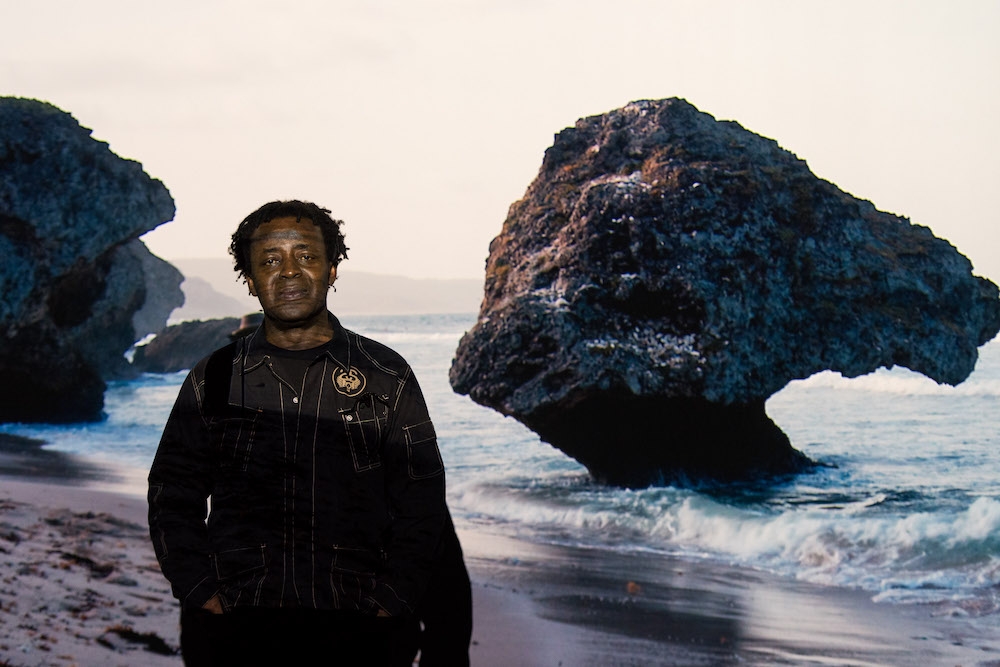The Ghanaian-born British filmmaker John Akomfrah has been an influential figure in experimental film for over three decades, his work dealing with race, cultural identity and the history of colonialism. He was a founder member of the Black Audio Film Collective in the 1980s. His films include Handsworth Songs (with BAFC, 1983), Seven Songs for Malcolm X (1993), The Stuart Hall Project (2013) and Vertigo Sea (2015).
ARTREVIEW: As one of the six shortlisted artists for Artes Mundi 7, you’re showing at National Museum Cardiff, alongside Neil Beloufa and Future Farmers. Could you tell us a bit more about your project for Artes Mundi and what form it takes?
JOHN AKOMFRAH: My project is called Auto Da Fé and it’s a two-screen piece on the recent migrations across the Mediterranean. I insert that recent material into a longer three-century look, and explore some of the reasons for migrating.
AR: Artes Mundi aims to support ‘contemporary visual artists who engage with the human condition, social reality and lived experience’. How do you feel your work relates to that definition?
JA: The idea is to paint a broad portrait of some of the histories of precarity that underlines enforced migrations, especially in situations where people feel the need to take flight from dangerous conditions.
AR: Making work which reflects society as it is today can involve some of its most difficult aspects. What role do you think art should or could play in better highlighting or understanding these issues?
JA: I think art should definitely be part of the conversation. Many of the ongoing dramas and traumas of the contemporary world require dialogue, require conversations between groups, and I think art is an essential component in that conversation.
AR: What has the experience been like to be in a group exhibition such as Artes Mundi? Do you feel particular connections with the other artist’s practices? And what do you think could emerge from this experience?
JA: A few of the artists involved were known to me already as friends. One of the gratifying things about taking part in this exhibition was to finally to be in a show with them. Broadly, you have a group a people with overlapping concerns brought together, and I think it’s a very good thing that these artists with a conscience are brought together in an exhibition setting.
AR: Artes Mundi is the largest monetary prize in the UK, offering £40,000 to the winner. Should you win, how do you plan on using the prize money? Do you have a particular project that you would like to use it to realise?
JA: I do, although I’m slightly superstitious about speaking of projects! It would help to complete the final part of a trilogy I’ve been working on.
ArtReview is media partner to Artes Mundi 7. The winner will be awarded on 26 January at a ceremony in Cardiff. The prize exhibition runs at at National Museum Cardiff and Chapter, Cardiff, through 26 February
